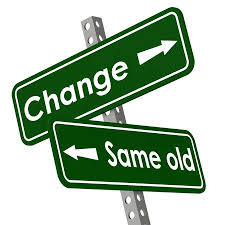 June 2019
June 2019
Status quo can be the biggest impediment to change in condo communities.
Status Quo
The existing state of affairs
A condo building may require major updating. There may be water leaks, high utility bills and a host of other problems. Yet most people will prefer to keep things the way they presently are. Some will not see a need for improved energy efficiency. Others will not view current water or building temperature issues as a concern. Many will prefer old or outdated common areas to the unknown of renovations. And many will oppose any increase in condo fees to pay for any of this even if it results in financial savings or increased property values a few years later.
In the end, condo owners can end up with higher condo fees because nobody agreed on doing anything. After discussions, research and advice, no decisions were made except to maintain the status quo.
More often than not, the status quo wins out over better choices.

IBM, one of the great companies of the 1970s, had a unique way of dealing with the status quo. Once a decision was made against purchasing from IBM, sales agents were not allowed to speak with that client for a year after implementation. Those that disobeyed this policy were fired.
The reasoning for this was simple. It takes time for people to realize their mistake. Eventually, people recognize that an earlier decision did not work out, or that the status quo is no longer an option, and begin seeking new solutions. At times an organization felt it could not afford the IBM solution. For IBM, one year was considered an adequate contemplation period. By this time there may be new people making decisions or the financial situation may have changed.
Condo directors regularly compete with the status quo. It takes confidence to advocate for and support change in opposition to the status quo. Good condo boards that rely on research, expert advice and financial analysis are less likely to opt for the status quo over better choices available to them.



